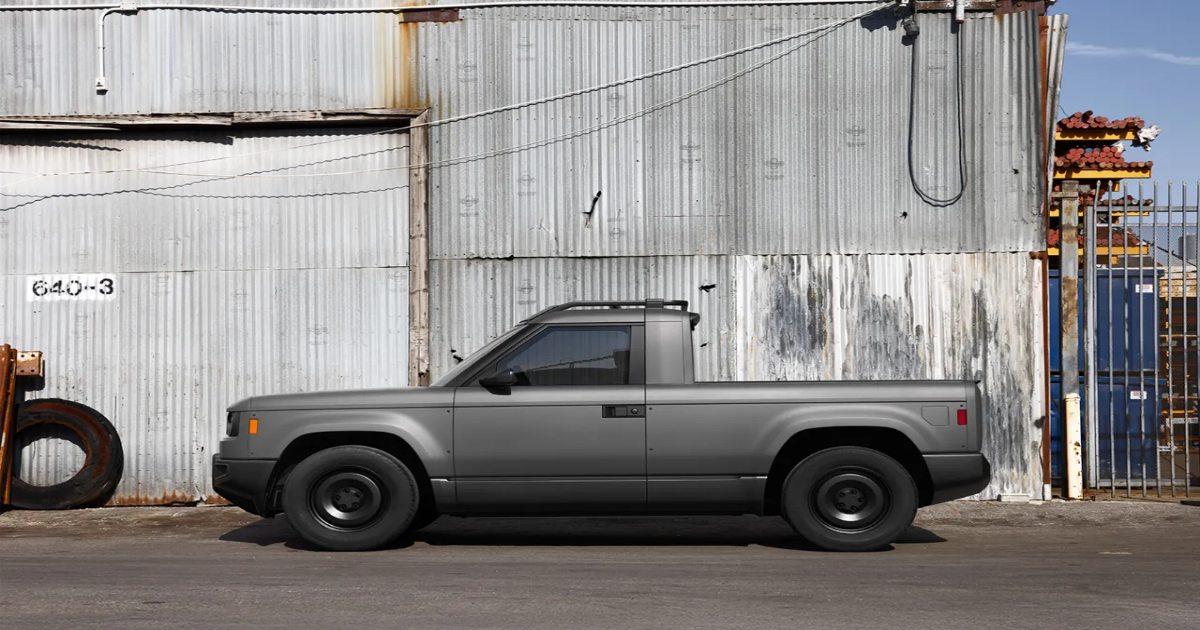WARSAW, Ind. (WANE/AP) A low-cost direct to consumer electric vehicle manufacturer will build its vehicles at a property in Warsaw. News Now! Warsaw reported on Tuesday that Slate Auto sent an email to Warsaw media outlets confirming it will turn a vacant building into a manufacturing plant. The facility will employ more than 2,000 people.
Wednesday morning, the Kosciusko Economic Development Corporation (KEDCO) told WANE 15 that Slate’s factory will be built in Warsaw. The KEDCO couldn’t confirm the news on Tuesday because of a non-disclosure agreement.
The KEDCO says Slate’s decision to build trucks at the former R.R. Donnelly printing plant on West Old Road 30 just west of downtown Warsaw fulfills the company’s commitment reindustrialization. The facility has been vacant for several years and sits adjacent to railroad tracks.
“We were so fortunate to find another user, especially at this caliber,” Peggy Friday, CEO of KEDCO said.
Friday added that a Slate electric vehicle production plant is a great opportunity to diversify the county’s job market and economy.
“We are the orthopedic capital of the world,” Friday said. “But also bringing such brand new technology innovation to Indiana, we are just really proud that we could be competitive. Because they could have landed most anywhere.”
The Indiana Economic Development Corporation said they were excited after Slate confirmed the Kosciusko County location.
“Slate will locate on a brownfield site that was previously home to a catalog factory, bringing new life to the community and creating thousands of quality career opportunities for Hoosiers. This development will pave the way for long-term community and economic impact in Kosciusko County and beyond, and it will solidify the leading role Hoosiers play in the future of U.S. innovation and manufacturing.”
David Adams, Indiana Secretary of Commerce
Slate Auto, is a new Michigan-based electric vehicle (EV) startup backed by Jeff Bezos. Slate’s first product will be an electric pickup truck starting at $25,000, and potentially less than $20,000 with federal EV tax credits. CEO Chris Barman, a veteran of Fiat-Chrysler (FCA), believes Slate’s approach could fill a gaping hole left by both traditional automakers and electric disruptors.
 Artist rendering of Slate EV.
Artist rendering of Slate EV. Artist rendering of Slate EV.
Artist rendering of Slate EV.
The average price of an electric vehicle in the U.S. today is $59,000. Electric pickups can cost even more with the Ford F-150 Lightning and Rivian R1T regularly topping $100,000 for higher-trim models.
Slate’s offering is a radical departure from this trend. Their base truck will come standard with 150 miles of range—more than enough for the vast majority of daily driving needs. No frills, no unnecessary tech add-ons that drive the price sky-high. Just basic, reliable transportation in an electric package. If Slate can pull this off, it will achieve what no other EV company has managed so far.
Slate’s focus is on simplicity and modularity. Their base truck is designed to be what they call a “blank slate,” a bare-bones vehicle that gives buyers the freedom to add features as needed, based on their budget and requirements.
Since Slate plans to sell vehicles directly to consumers—bypassing traditional dealership networks—it doesn’t have to sustain a web of service departments. That frees Slate to encourage DIY upgrades in a way no other major automaker would dare. Slate is launching “Slate University,” an online series of instructional videos that will walk owners through everything from installing power windows to adding rear seats and airbags for the SUV conversion.
For those less inclined to DIY, Slate also plans to partner with local facilities that can perform upgrades professionally, creating a hybrid model of service that supports different kinds of buyers.
Slate plans to begin customer deliveries at the end of 2026. Reservations are now open, requiring a refundable deposit of just $50.
